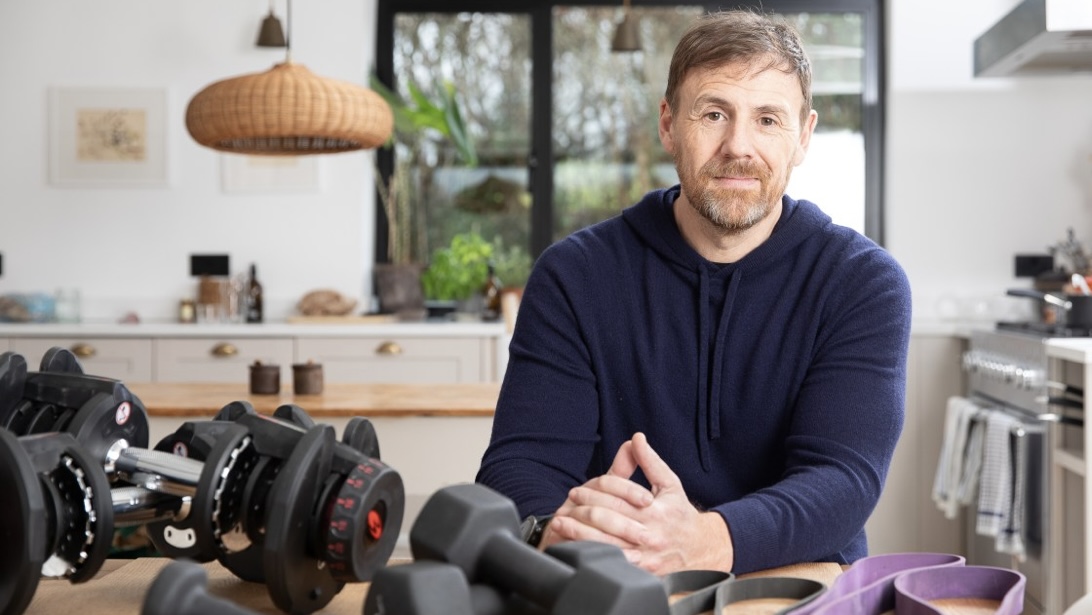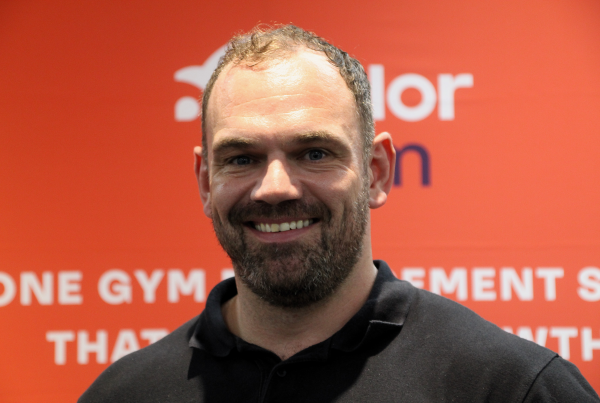In this blog series, we hear from some of the top health professionals in the UK about the importance of physical activity for lifelong health as we continue to celebrate the importance of National Fitness Day.
In this fifth blog, David Vaux, osteopath, exercise expert and strategic lead in exercise and therapy for Arthritis Action, discusses the impact of physical activity on health and what we can learn from the MSK Hubs programme.
Simply put, being consistent with our physical activity levels is the single most powerful influencer of our ability to maintain health as we age.
It should come as no surprise then – and as has already been highlighted within this blog series – that the World Health Organization recommends we try to attain 150 minutes a week or 30 minutes a day of moderate activity. What is less discussed, within the same recommendation, is the importance of adopting two weekly strength training sessions into our week. It seems that as a nation, and indeed globally, we are more likely to invest in our steps rather than our reps.
Steps and reps
So how then can we help inactive people in the UK get moving and in turn help them to reap the subsequent long-term benefits in health, resilience to infection or injury, independence and prevention of falls? And how can we break down the barriers to getting our steps and reps for those with little or no background in exercise?
As part of the MSK Hubs consortium, it was this challenge that was front and centre to our work, informing the resources that were developed for participants with joint pain, arthritis or mobility challenges and enabling leisure centre staff to more fully understand their lived experiences or fears around exercise.
What we found confirmed what many of us working in this field already knew: behaviour change and the establishment of healthy exercise habits often starts with a friendly chat within a community setting that one can relate to. The result of the project was an activation ‘blueprint’ – a clear and actionable plan for creating ‘exercise and activity community’ around not only those with MSK conditions but which also promises to benefit those of us experiencing other long-term health conditions.
Convenience rich and time poor
This represents one of the most common and understandable ‘pushbacks’ that we often have to navigate when working to activate people into more exercise. The issue that many ‘would-be exercisers’ seem to revolve around is their lack of time, experience, or confidence in their own abilities. All of which is understandable when we consider that ultra-convenient modern living has rendered movement and activity ‘optional’, with many working environments subsequently motionless for many.
Thankfully, even a little exercise can greatly improve our chances of preventing most health conditions, and frankly, when starting out, it is always best to start off slowly to allow our bodies time to adapt.
Subsequently, it is truly liberating to realise that even a few minutes of exercise a day, if done consistently, will significantly improve our long-term health.
Your strength and exercise pension
I find it helpful to compare the benefits of exercise – and maintaining our strength and muscle mass – as similar to investing in a pension plan. However, in this case I would suggest that investing in our physical pension is arguably more important that any fiscal planning because irrespective of your financial situation, no amount of money will help us in older age if our ability to move is no longer an option.
The great news is that even in middle or retirement age, we can still reap all the long health benefits of exercise having been inactive to this point. The key is to just make a start and commit to a realistic approach for long term exercise. Even if someone has little experience of exercise or has a long-term condition, in the vast majority of cases there will be a starting point for them to begin their exercise journey.
It is important to remember that for most of us, exercise and activity should be a route to health in older age. With this in mind, just like eating healthy most of the time, if we also aim to return to a sensible framework of exercise most of the time, then the future and our journey into old age is going to be just fine!
To hear from other experts in our National Fitness Day series, head to our blog section here.

More People More Active More Often




